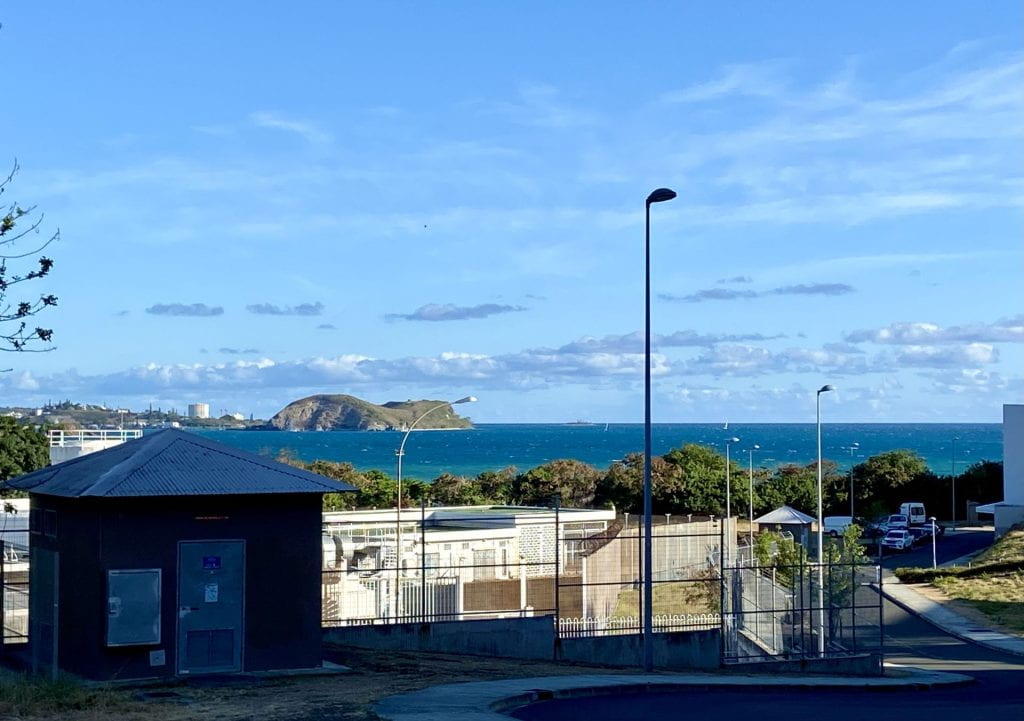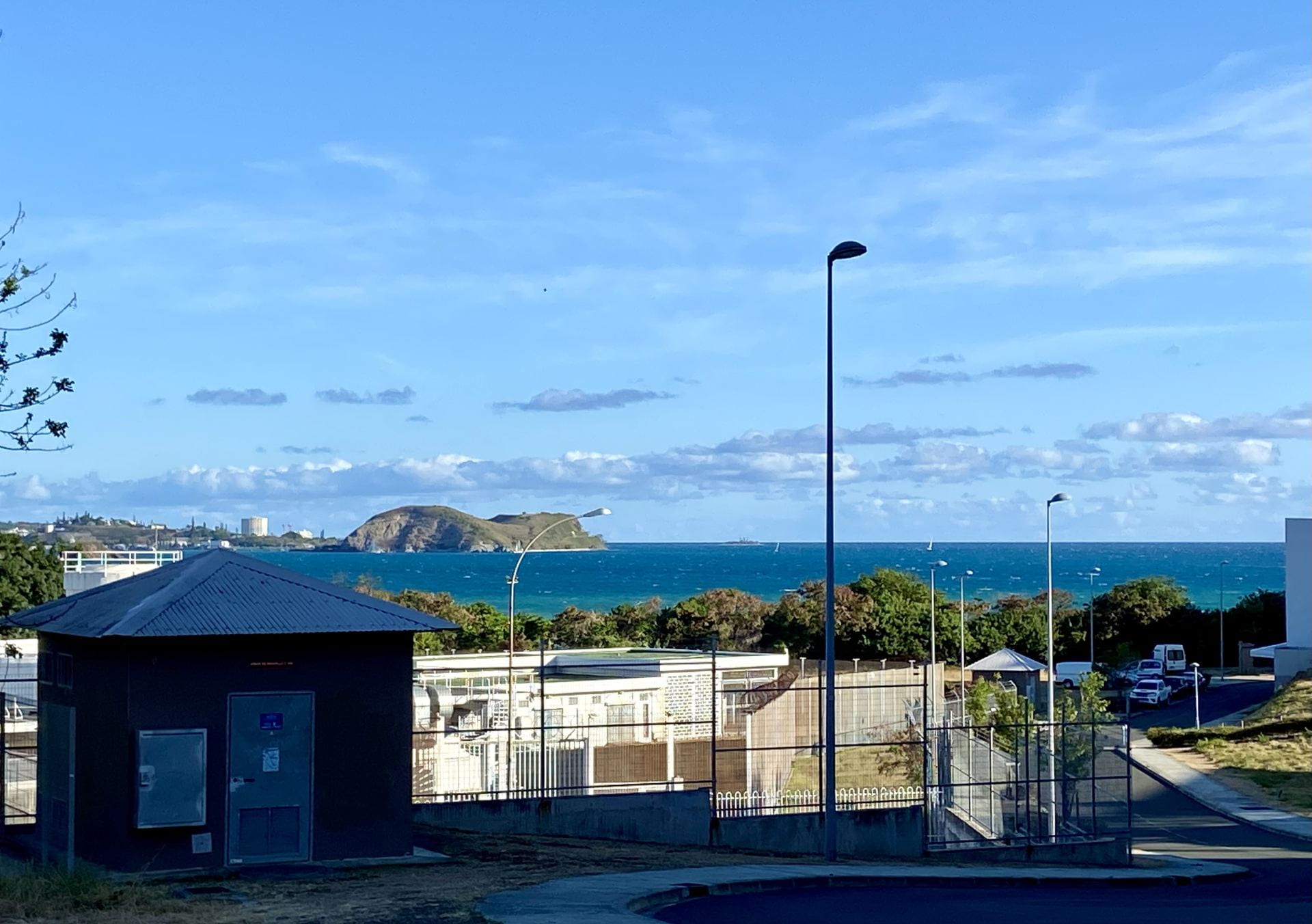
I learned about this short-term exchange program through a notification posted by my instructor on Canvas. The opportunity immediately intrigued me, promising a blend of academic enrichment and cultural immersion. When I arrived at the host university, I was engulfed in feelings of novelty and excitement. Every aspect of this new environment was strikingly different from what I was accustomed to in Auckland, from the climate to the cultural practices, creating a sense of wonder and curiosity.
The reception staff at the university extended a warmth and hospitality that was deeply comforting. Their eagerness to assist and familiarize me with the surroundings made the transition into this unfamiliar territory smooth and welcoming. The university’s campus was breathtaking, vastly different from any academic setting I had previously encountered. Palm and coconut trees lined the pathways, swaying gently under the radiant sunlight. The classrooms offered a spectacular sea view, lending a serene and almost surreal quality to my learning experience. It felt like I was studying in a tropical paradise, a stark contrast to the urban backdrop of Auckland.
The accommodation provided exceeded all my expectations. The rooms were spacious and well-appointed, offering a stunning sea view. Including a mini-fridge in every room was a thoughtful touch, greatly facilitating our daily living needs. Even though the toilets were shared, the arrangement was well thought out. Separate shower facilities and a consistent hot water supply improved our stay’s comfort.
The structure of the exchange program was meticulously planned and executed. The mornings were dedicated to language classes, which were informative and interactive, enhancing our linguistic skills in a practical setting. Afternoons were reserved for cultural learning and a variety of extracurricular activities. This balanced approach allowed me to focus on academic growth and engage in a broader cultural exchange. The extracurricular activities offered a deeper insight into Nouméa’s diverse cultural landscape. The city, a melting pot of Kanak, European, and Southeast Asian influences, presented a unique blend of traditions and lifestyles. One of the most memorable experiences was visiting local tribes. These visits gave us an invaluable opportunity to gain a firsthand understanding of Pacific culture, going beyond theoretical learning and immersing us in the rich tapestry of local customs and traditions.
Living in Nouméa, albeit temporarily, was an eye-opening experience. The cost of living was higher than in Auckland, but the richness of experiences and learning opportunities outweighed this. The campus had two restaurants, which, although they closed early, encouraged me to explore my culinary skills. Preparing meals became an enjoyable routine, allowing me to experiment with local ingredients and recipes.
I would wholeheartedly recommend seizing the opportunity for anyone considering participating in a similar exchange program. Such experiences are transformative, offering a blend of education, cultural immersion, and personal growth. A piece of advice I would suggest is to come prepared for the climate – bring enough sunscreen and mosquito repellent, as the sun is much more intense, and the presence of mosquitoes is more noticeable than in Auckland. And, of course, don’t forget to pack your favourite swimsuit. The university’s proximity to beautiful beaches provides a perfect escape after classes, where you can relax by the crystal-clear waters and reflect on the day’s learnings.
In conclusion, this short-term exchange program was an academic endeavour and a personal and cultural discovery journey. It broadened my horizons, challenged my perspectives, and left me with memories and experiences I will treasure forever.
What were the highlights of your experience during your time in the French Summer School?
After swimming alone by the sea, I asked a local about nearby restaurants. Although the restaurants were closed, the warm-hearted individual took me to a local kava bar. I had the opportunity to taste kava there, and his lovely daughter offered me a piece of chocolate. At that moment, the Kanak culture I had learned about at the university vividly came to life before me. I also heard children singing in the local language. Throughout the entire experience, I communicated with them in French. It was an exhilarating and unforgettable adventure.
Were there any activities that were unique to your host country or university that you would recommend?
I recommend a particular activity during our short-term exchange experience: preparing the traditional New Caledonian dish, Bougna. Bougna is not just a delicious meal but also a cultural experience. Typically made with fish, seafood, chicken, and local vegetables like sweet potatoes, taro roots, and bananas, it is then wrapped in banana leaves with coconut milk and slow-cooked in an underground stone oven. Making Bougna is a culinary activity and an opportunity for cultural exchange. We can learn together how to select and prepare the ingredients, discuss the historical and cultural significance of this dish, and, in doing so, enhance our understanding and friendship with each other. Every step of the process, from preparing the ingredients to enjoying the final dish, will become a shared memory. I think that through such an activity, we will not only taste the delightful local cuisine but also gain a deeper understanding of New Caledonian culture. This will be an unforgettable part of our exchange experience, bringing us closer together.
What are your top 3 tips for future students attending this programme?
- Active Participation in Cultural Exchange Activities:
- I advise students to actively participate in these activities as they offer an opportunity to understand local culture and customs and help expand social networks. Whether visiting local communities, engaging in traditional activities, or trying local cuisine, each of these experiences represents a valuable opportunity for learning and growth.
- Adapting and Appreciating the New Environment:
- I recommend that new students maintain an open mind and actively adapt to the new environment. This includes understanding and respecting local cultural practices, actively communicating with local people, and utilizing the surrounding environment (such as beautiful beaches and natural landscapes) for relaxation and recharging.
- Utilizing Resources to Enhance Academic and Language Skills:
- I suggest that students fully utilize the academic resources available during the short-term exchange, such as language courses and libraries, to enhance their academic abilities. Additionally, I recommend using real-life scenarios in daily life to practice and improve language skills, for instance, through regular conversations with local students and teachers.
How much did you budget? Was this enough? Were there any lessons learned that would help future students budget for their own short-term programme?
My budget was one thousand five hundred, which was sufficient for me. This was mainly because the university campus is far from the city centre, resulting in minimal expenses outside of routine grocery purchases. I advise students to estimate their exchange budget based on their spending habits in Auckland. However, one recommendation I would like to make is to prepare a wallet for coins. The currency denominations here range from ten thousand to ten cents, and often, you’ll receive a substantial amount of change in coins.
What were the most significant takeaways from your experience with this programme?
The most significant benefit I gained from my overseas experience is a deep understanding of and adaptability to different cultures and improving my French proficiency. Participating in cultural exchange activities, adapting to new environments, and utilizing resources to enhance my academic and language skills have been integral to this experience. These experiences have helped me understand and respect local cultural customs and enhanced my communication skills and self-adaptability. They have broadened my global perspective, increased my independence, and improved my ability to solve real-world problems, all essential for studying and living abroad.
